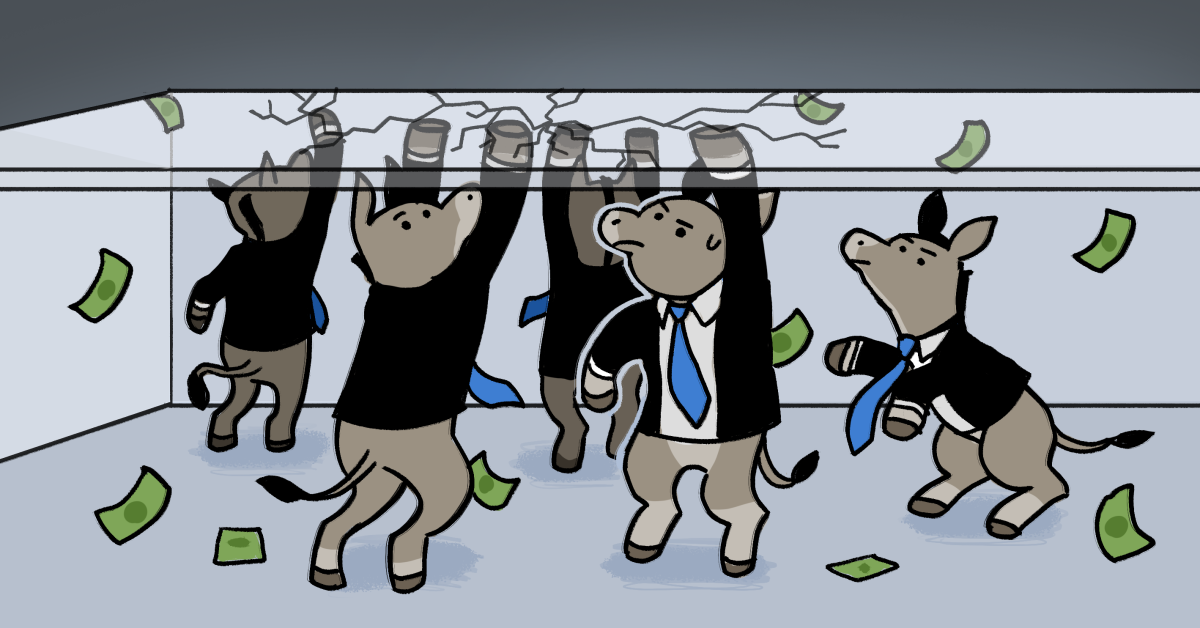The U.S. defaulting on its debt would be unprecedented, no one can predict the full effects of the default. However, one thing is for certain: it would be catastrophic.
Raising the debt ceiling is nothing more than a meaningless debate that takes attention away from important conversations we could be having about actually reducing our debt.
The debt ceiling is the maximum amount of money the government can borrow to pay off its debts, according to a Sept. 27 New York Times article.
The U.S. government currently needs to pay off $28.43 trillion in debt expenses including “social safety net programs, interest on national debt and salaries for troops” that’ve already been approved by Congress, according to the same New York Times article.
Democrats, who’ve controlled Congress since Biden assumed Presidency in January, want to raise the debt ceiling but Republicans, the minority party, are against it.
It seems as though Republicans are bitter about being the minority party and are trying to make it as complicated as possible for Democrats to pass any new legislation.
The Democrats’ control of Congress means they have the ability to remove the debt ceiling if they get a majority vote on it.
Instead, they continue to have a useless and tired debate that doesn’t go anywhere and wastes what little time they have as a majority party.
Paul-Vincent Lombardi, San Jose State economics assistant professor, said the minority party uses the debt ceiling as a bargaining tool in hopes of getting the majority party to vote on causes they normally wouldn’t.
“[The debt ceiling has] been an effective tool by the minority party to get concessions out of the other party. And so, those concessions could be favorable terms [including] cutting budgets,” Lombardi said.
Republicans repeatedly argue that raising the debt ceiling is increasing unnecessary spending and push the narrative that Democrats want to take more money out of the American peoples’ pockets to fund U.S. spending, depicting the party in a negative light.
“This whole debate about the debt limit adds unnecessary uncertainty to the whole economic process,” Lombardi said. “Economic agents are less willing to make investments or less sure about what’s going to be happening [to the economy]. It almost makes it a waste of time for no apparent reason.”
The threat that the government won’t be able to pay off its debt creates a whirlwind of chaos in the economy.
In 2011, the U.S. had a similar situation that led to consumer confidence dropping by 22% and business confidence dropping by 3%, according to an October 2013 report by the U.S. Treasury Department.
Consumer confidence measures how optimistic or pessimistic consumers are in their spendings. The more optimistic they are, the more likely they are to buy products and stimulate the economy, according to a Nov. 30 Investopedia article.
The back and forth debates about the debt ceiling is making it crystal clear that our officials care more about making political points than protecting our economy, especially when people are already hurting financially.
Wouldn’t time be better spent working to pass bills that actually reduce the amount of debt we are in?
Democrats and Republicans unsurprisingly came to an agreement on Thursday to increase the debt ceiling by $480 billion, according to a Thursday New York Times article.
However, the agreement comes with a catch: the government can only borrow until December, which means this isn’t the end of the debt ceiling debate.
The settlement will give Democrats enough time to go through the long cumbersome process of raising the debt ceiling without having to wait for Republican support, according to the Thursday New York Times article.
Going through economic jargon about the debt limit isn’t easy to follow but what is decided now will directly affect us in the future.
“It could affect the benefits that you guys receive in the future. So you guys should care about taxes and the debt because, eventually, someone [will] have to pay for it and it may be later generations,” Lombardi said.
It’s important to recognize we’re pawns in a massive political game.
To our elected officials, the debt limit is a tool to win votes and not a chance to have necessary conversations about reducing debt.
We don’t have to keep being pawns for politicians to play with. Demand our officials to stop bickering about the debt limit and talk about debt or tax avoidance instead!









































